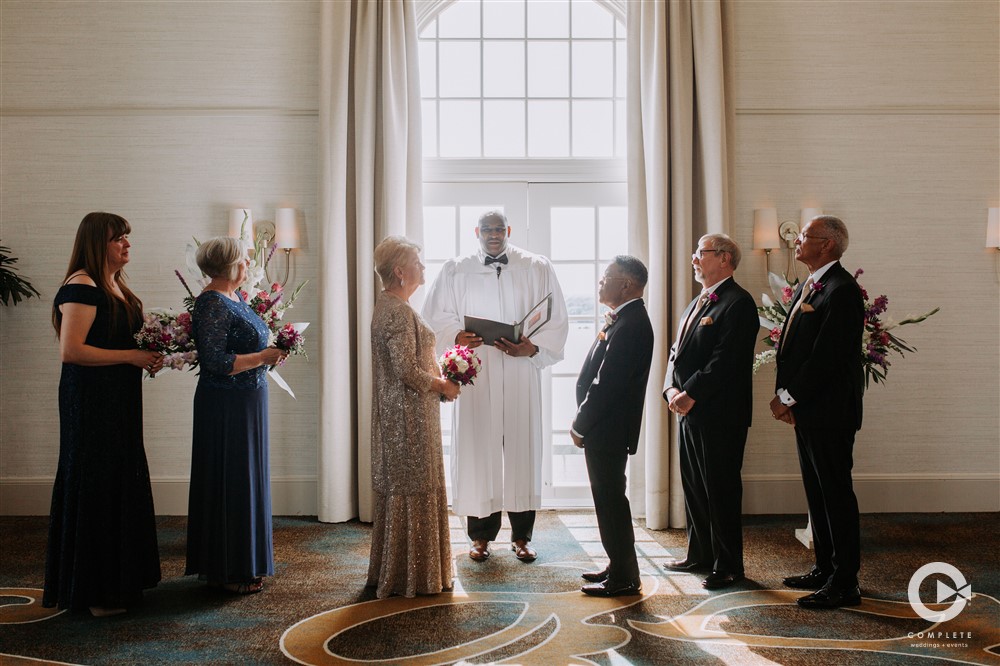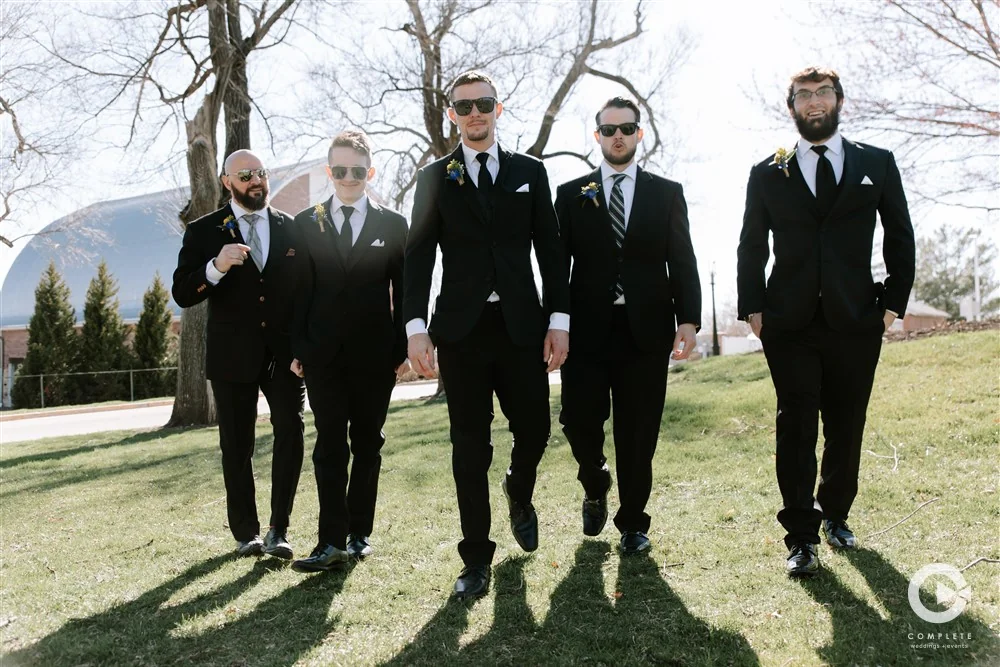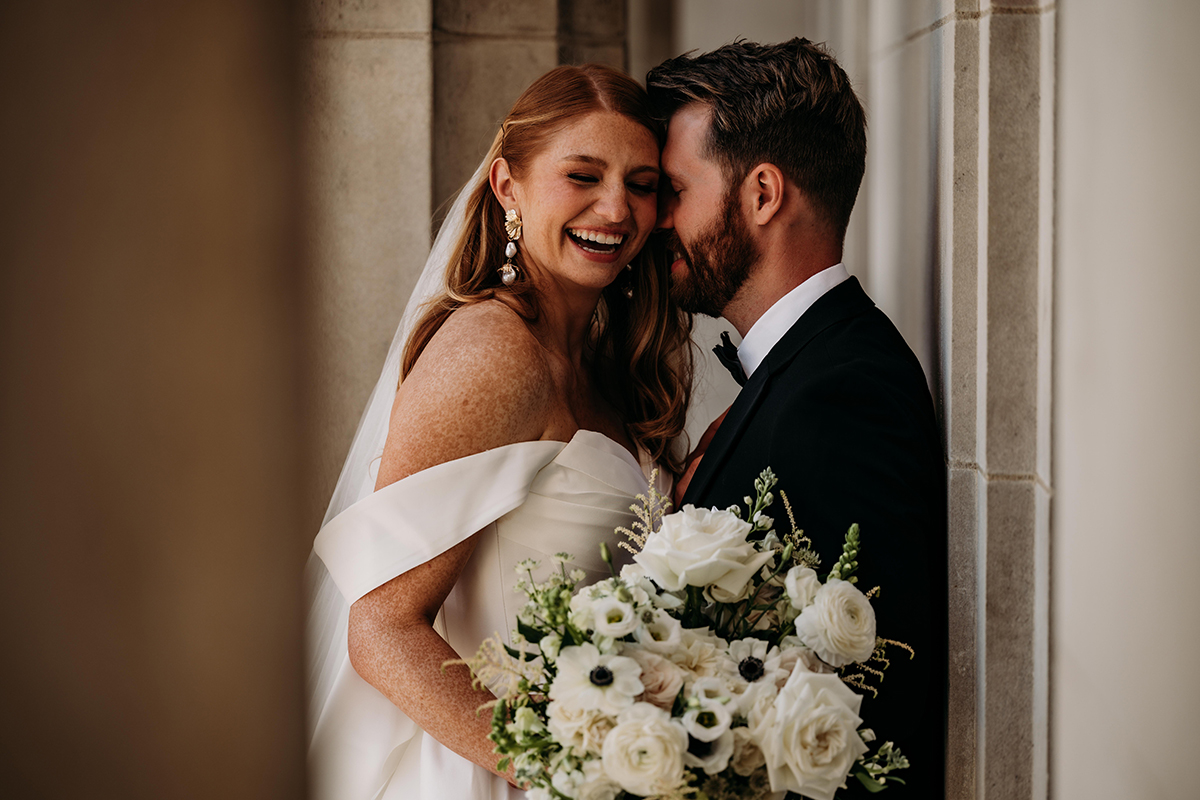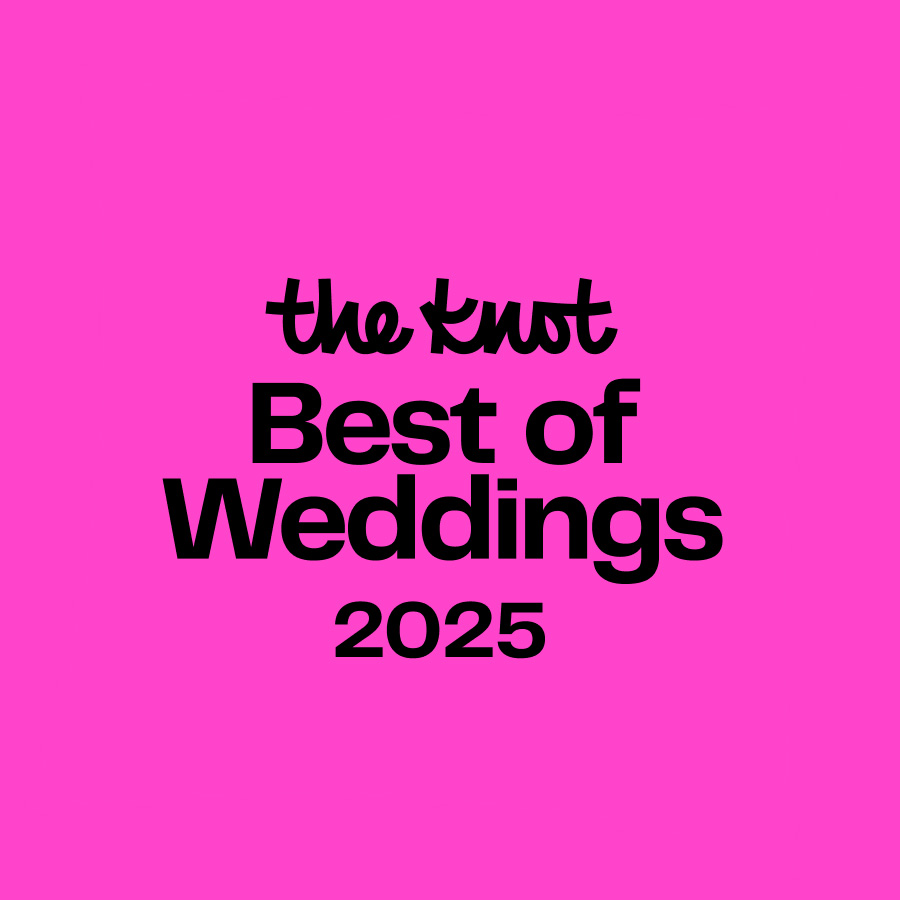Advice on Choosing a Wedding Ceremony Officiant

You make a lot of decisions when planning a wedding. From the venue, the food, the music, and the wedding ceremony officiant, you want the entire day to be magical. The person who marries you has an important job. Not only do they have to be qualified or ordained, but they should be someone you both feel comfortable with. Your wedding officiant should be someone who can make your ceremony special and romantic while keeping your guests attention. To aid you in your search, we have compiled everything you should know about hiring a wedding officiant.
What is a Wedding Officiant?
On paper, a wedding officiant is someone who can legally officiate a marriage ceremony. This person will not only officiate your wedding ceremony, however, depending on your situation and/or religion, he or she will work with you in the months leading up to your wedding day to make sure you both are ready for this huge life change. Off paper, a wedding officiant is a storyteller who spreads love and joy and appreciation of the privilege to bear witness to the love between two people.
The term “wedding officiant” includes religious leaders as well. However, a wedding officiant typically refers to a non-religious official who marries couples. This is helpful for couples who come from different religious backgrounds and want to incorporate aspects of both into their ceremony.
What type of officiant and ceremony do you want?
You may think your options are limited to either a religious or civil ceremony. However, there is a wide variety of choices within those two categories. Common types of ceremonies/officiants include:
- Religious: If you have a church, synagogue, or religious organization you’re a member of, you may want your pastor, priest, rabbi, minister, etc. to perform the ceremony. These ceremonies are generally more traditional and will follow the customs of that religious organization.
- Interfaith: Going this route is a way to have a spiritual ceremony even if you aren’t part of a religious community. Or, if you and your spouse come from different faith backgrounds. When you hire an interfaith minister, you will usually be able to make the ceremony more personalized than in a traditional religious setting.
- Secular: A secular officiant can help you create any type of ceremony you want. Maybe it has some religious aspects or maybe you love physics and want to incorporate a Carl Sagan reading into the ceremony. These types of officiants can vary greatly, and you can really find someone to do almost anything you’ve dreamed of. A good starting place for your search would be the Celebrant USA Foundation and Institute or The Humanist Society. These officiants are certified, which is a must for your wedding to be legally valid.
- Civil: Many judges, justices of the peace, and magistrates not only perform ceremonies at the courthouse. However, they will perform a more personal ceremony at another location. Your local county clerk’s office should have a list of those who are available for wedding ceremonies. Generally you work out the fee and specifics with the judge.
Meet with Potential Officiants
To help make sure this person is the right fit for your ceremony and shares a similar perspective on marriage, you’ll want to do more than just call and ask if these people are available. Set up a time to meet with them if you can. Or, at the very least, take the time for an in-depth phone conversation.
Is the officiant interested in getting to know you and your future spouse? Do they have strict ideas of what should happen at the ceremony? If so, do those views align with yours? Are they open to personalization? How much?
Make Sure They Are Recognized By the State
Before you make your choice, confirm that your officiant is officially recognized/certified in your state and county. You should also make sure you are both clear on the officiant’s official duties. Duties usually include submitting the marriage license back to your local clerk’s office to be filed.
Once you’ve decided on an officiant, put everything in writing (just like you do with other vendors). How much you will be paying the officiant? When do you have to pay them? What do their duties entail (rehearsal and ceremony, what time they will arrive the day of)? Do they understand the specifics of the ceremony (vows and readings chosen), etc.? Now you can rest assured that your ceremony — and the person you’ve chosen to officiate it — will reflect you, your future spouse, and the life you want to build together.
Treat Them Like Any Vendor
Ask for recommendations, reviews, and referrals. Have your friends and family been to weddings with an officiant they loved? When you meet with the officiants you are considering, don’t be afraid to ask them for testimonials from previous people they’ve married. Some may even have videos that you can watch of them performing a ceremony so you can make sure their style and tone are the right fit.
Others might suggest you attend a ceremony they are performing so you can make sure you like what you see. The bottom line here is: Do your research. Would you book a caterer without tasting their food or asking about previous experience? The officiant is just as important.
Complete Weddings + Events in Baton Rouge
Rain may be the bane of our existence on the wedding day, but sometimes it happens! Baton Rouge wedding professionals know how to react and adapt to these situations. Our team at Complete Weddings + Events has been in these situations before, and we will make sure we do our jobs properly! Our office staff is a text or phone call away (225-769-2229) for advice. To set up a consultation for your wedding or event, Contact Complete today!




